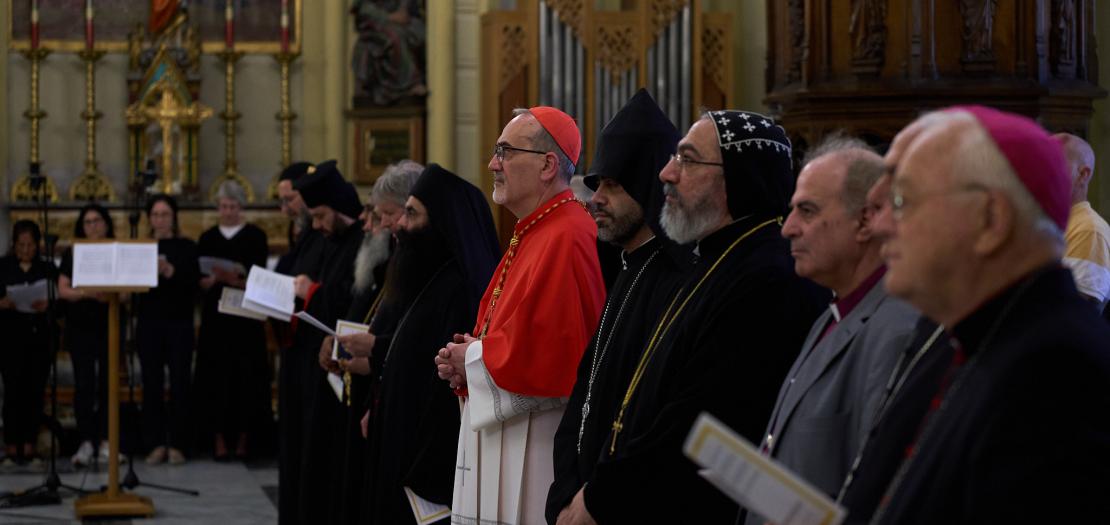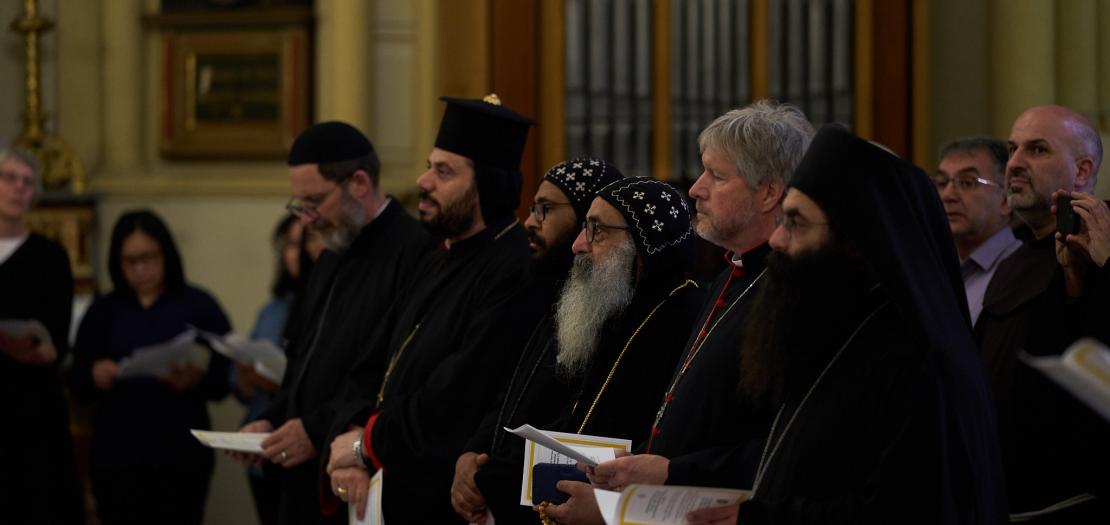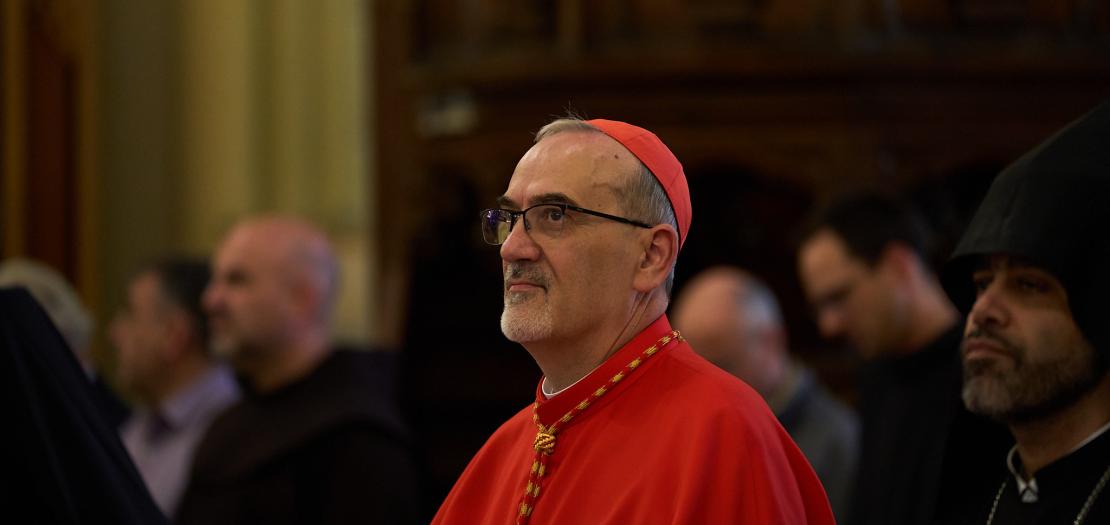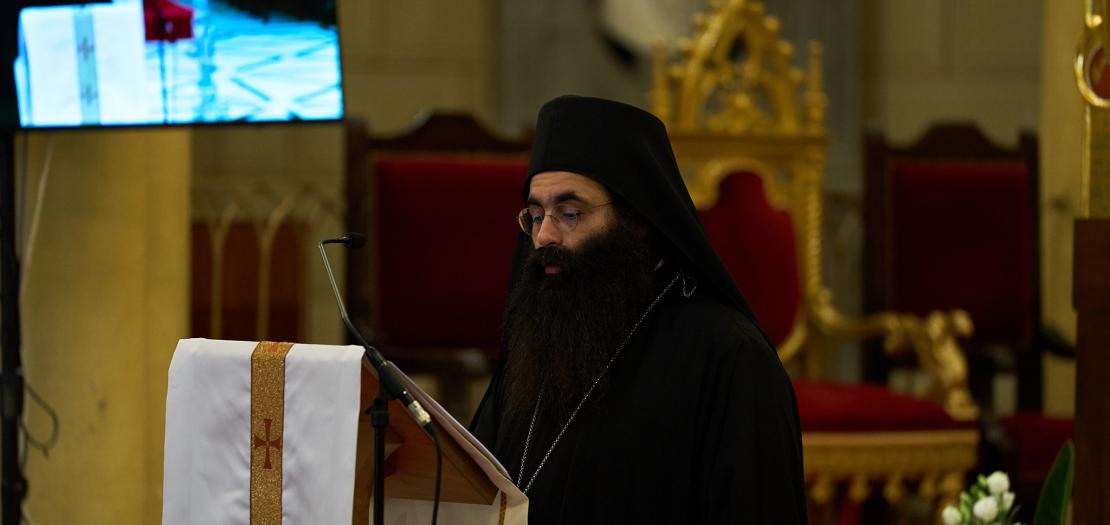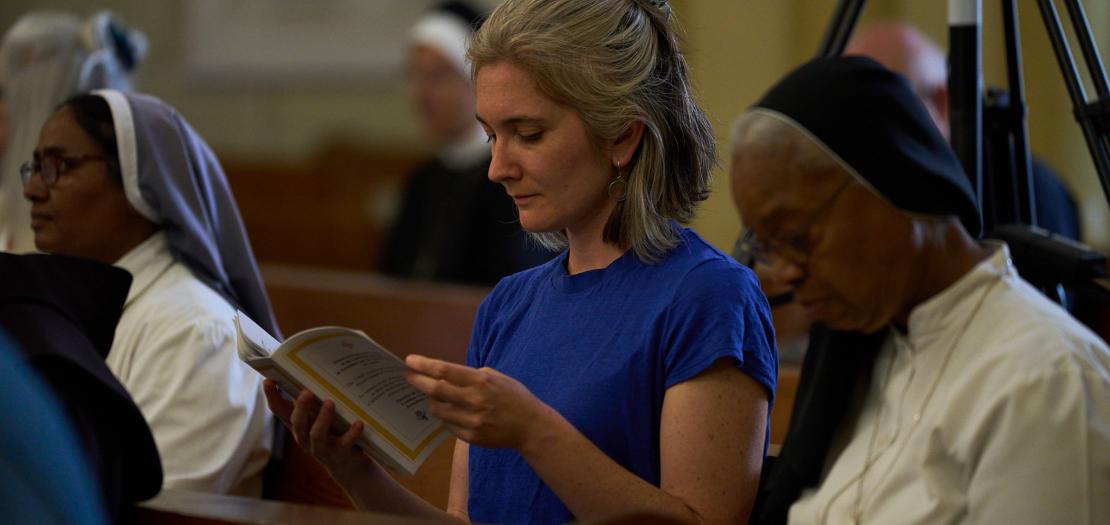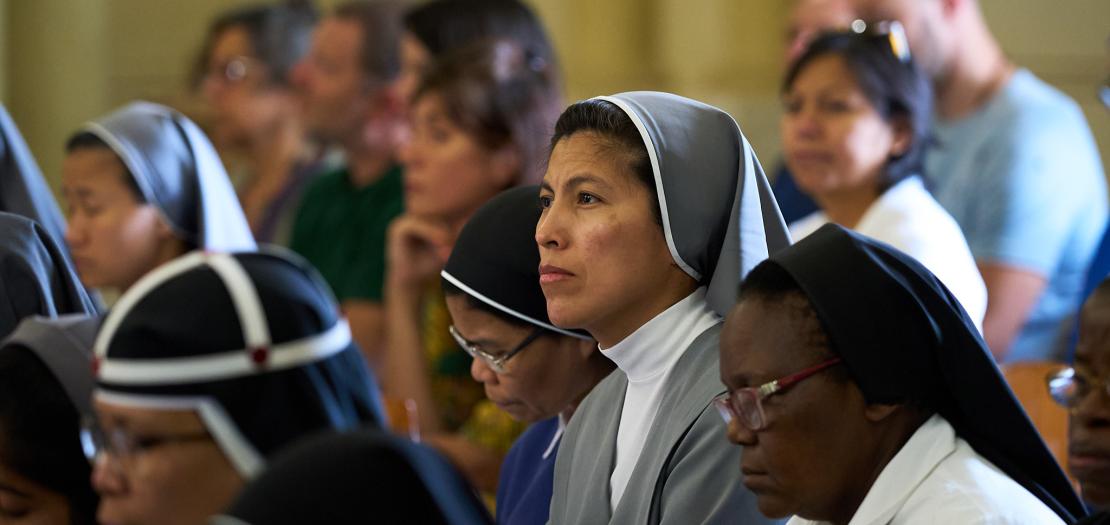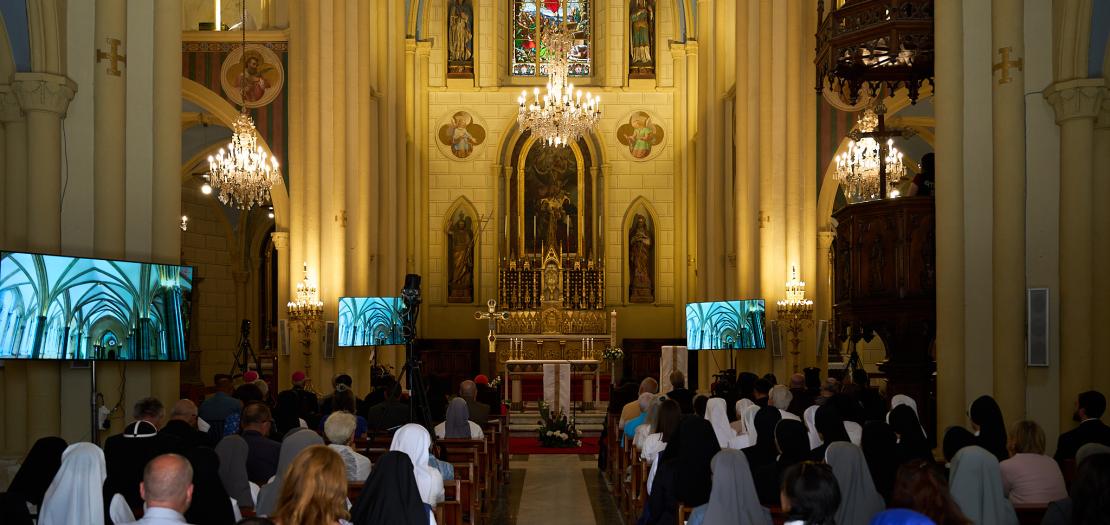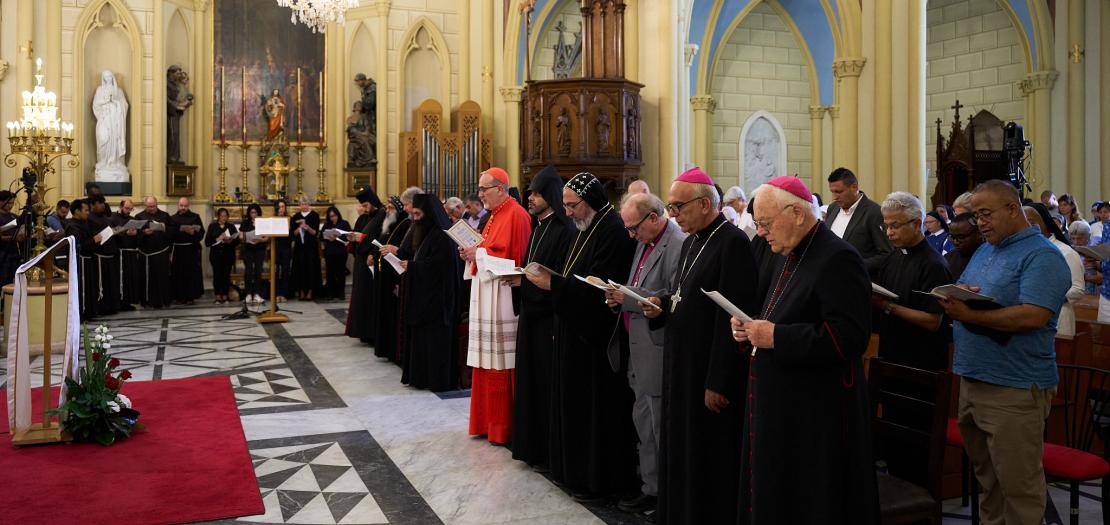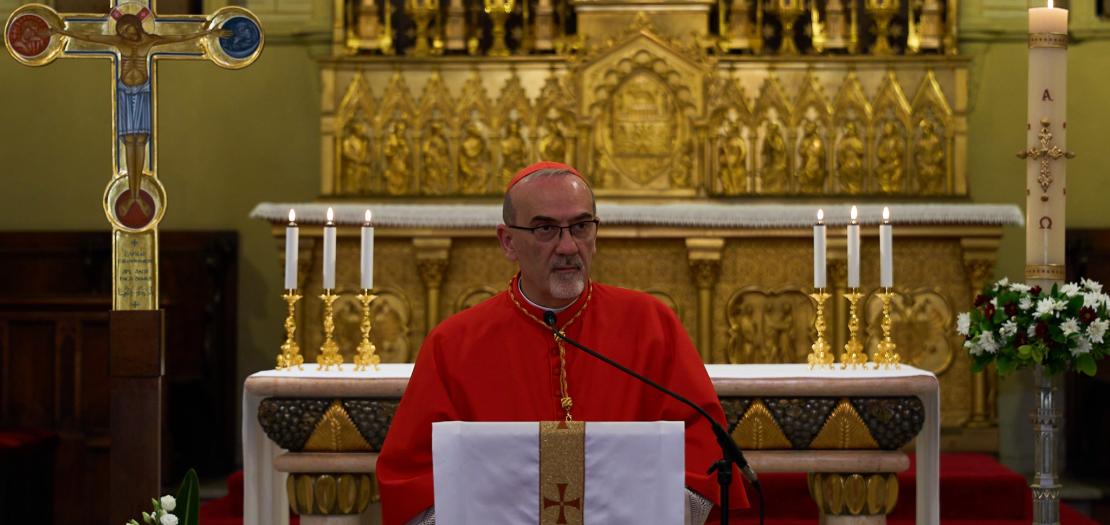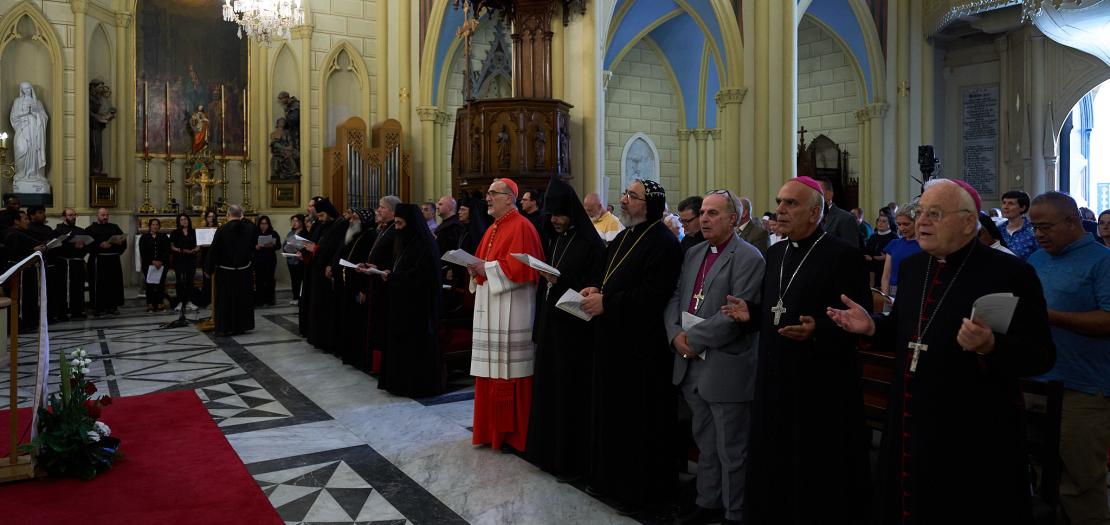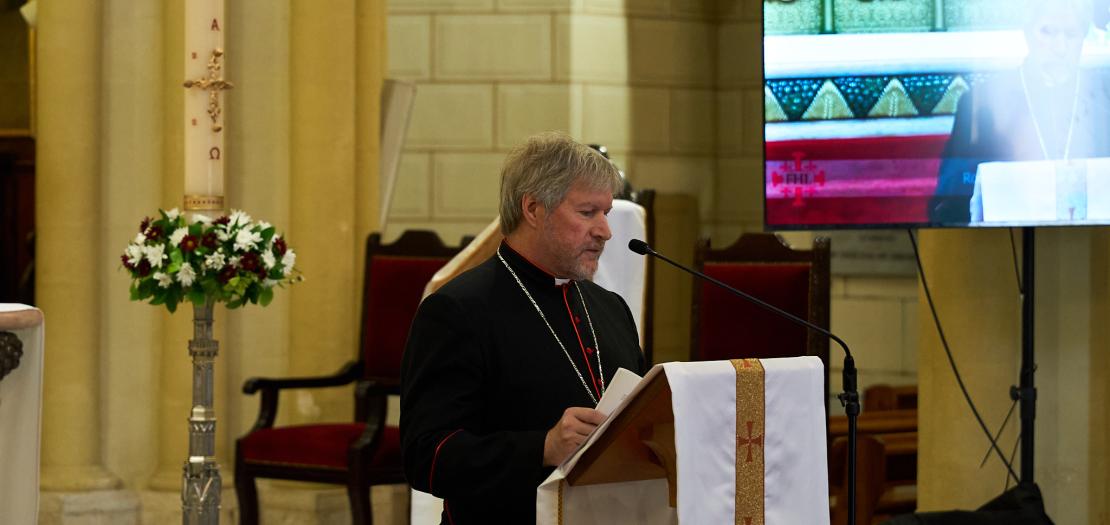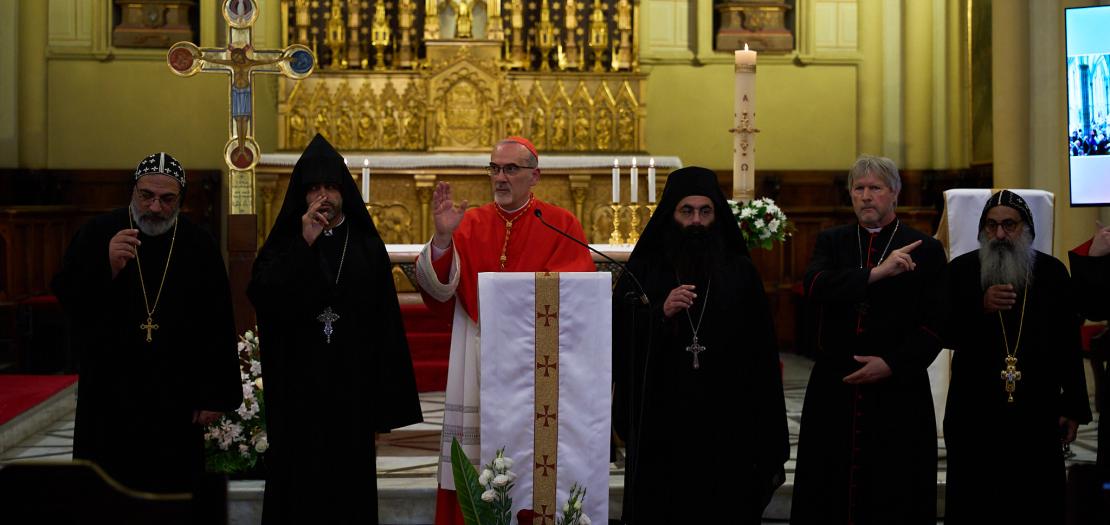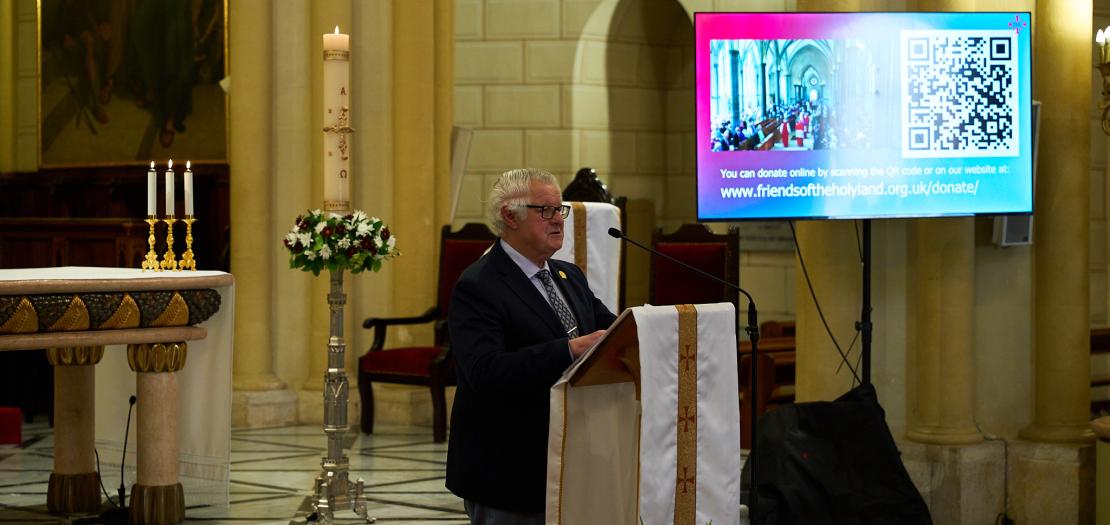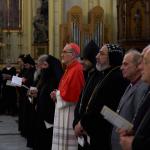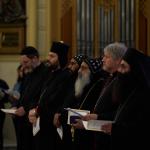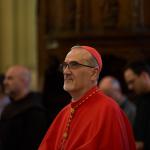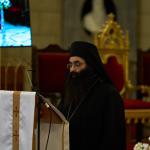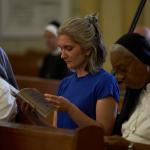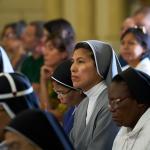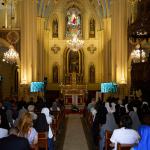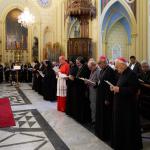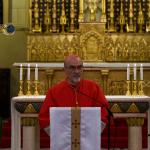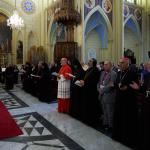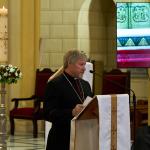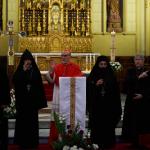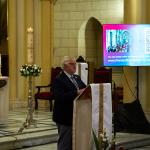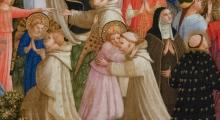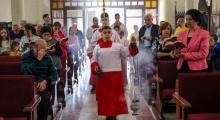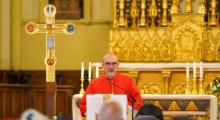Issued by the Catholic Center for Studies and Media - Jordan. Editor-in-chief Fr. Rif'at Bader - موقع أبونا abouna.org
On May 20, 2025, exactly 1,700 years after the beginning of the Council of Nicaea (325 AD), the cities of Jerusalem and London were connected simultaneously for an ecumenical celebration. This event brought together Christians from various traditions in a spirit of unity and hope, held in two symbolic locations: The Co-Cathedral of the Most Holy Name of Jesus in Jerusalem and the Temple Church in London.
Distant in the world, united in faith
Leading the celebration were key voices from the contemporary Christian world. In Jerusalem, Cardinal Pierbattista Pizzaballa, Latin Patriarch, spoke alongside several representatives of the Eastern Churches. In London, the event was opened by Cardinal Vincent Nichols, Archbishop of Westminster, accompanied by Anglican, Orthodox, and Catholic leaders.
The service was not only a solemn liturgical moment but also a powerful sign of brotherhood in a time marked by division and conflict, particularly in the Holy Land. A message from Pope Francis, read at the beginning of the celebration, expressed the Pope’s closeness to Christians in the Middle East and called for “an immediate end to conflict” and “a peaceful future founded on forgiveness and fraternal solidarity.”
The Council of Nicaea: history and spirituality
At the heart of the liturgy was the joint recitation of the Nicene Creed, spoken in various languages – Greek, Latin, English, Arabic, and even Old Church Slavonic – demonstrating the universality of the Christian message. This was a highly symbolic moment: the same Creed, formulated in the 4th century to affirm shared faith in the Father, the Son, and the Holy Spirit, continues to unite millions of believers around the world today.
The Council of Nicaea, convened by Emperor Constantine, was the first major ecumenical council in Christian history. From that assembly of bishops from across the Empire came a shared profession of faith, aimed at confronting the theological divisions of the time. Today, seventeen centuries later, that Creed remains a solid foundation of communion among the Churches, despite liturgical and doctrinal differences.
United in prayer for the Holy Land
Organized by the ecumenical network “Friends of the Holy Land,” the event also aimed to draw attention to the difficult situation of Christians in the Middle East, described as “living stones” to be supported through prayer and concrete acts of solidarity.
In a world searching for anchors of meaning, the simultaneous celebration in London and Jerusalem demonstrated that faith can still unite, crossing borders and languages to build bridges of peace and fraternity.


